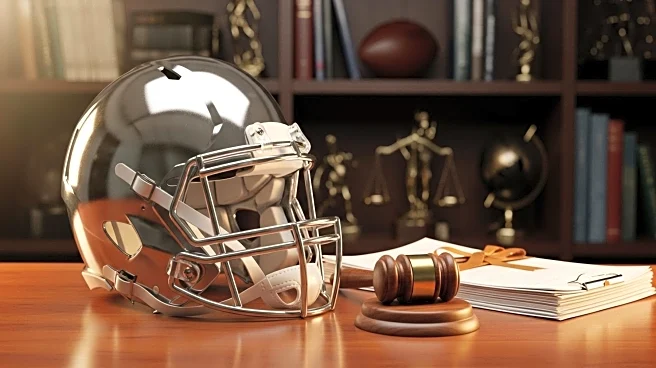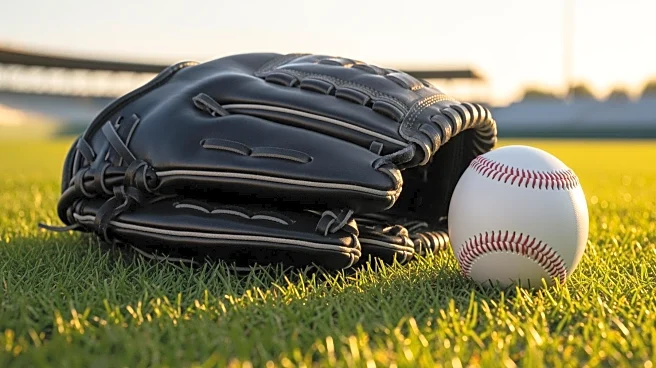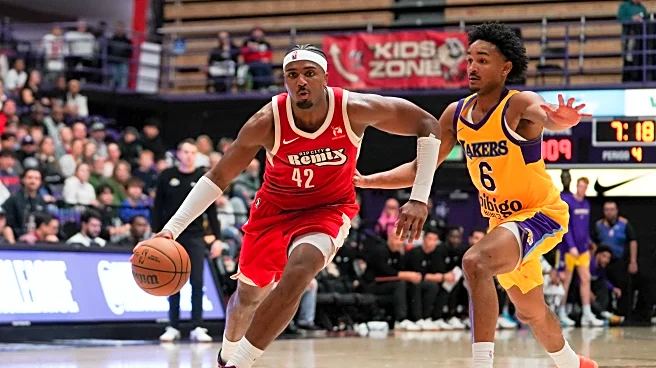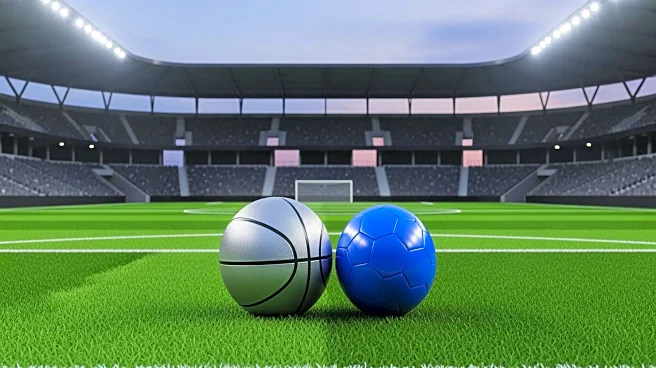What is the story about?
What's Happening?
Diego Pavia, quarterback for the Vanderbilt Commodores, is playing his sixth season of college football in 2025 after a legal battle with the NCAA over eligibility rules. Pavia, who is 24 years old, initially started his career at New Mexico Military Institute and later played for New Mexico State before transferring to Vanderbilt. His eligibility for the 2025 season was secured through a court case that challenged NCAA rules regarding player eligibility during the 2020 COVID-19 season. A federal court granted Pavia a preliminary injunction, allowing him to play this season, and an appeals panel recently dismissed the NCAA's appeal against this decision.
Why It's Important?
Pavia's case highlights ongoing debates around NCAA eligibility rules, particularly in the context of the COVID-19 pandemic and the evolving landscape of college athletics. The decision to grant Pavia an additional year of eligibility could set a precedent for other athletes seeking similar extensions, especially as it relates to name, image, and likeness (NIL) rights. This case underscores the increasing legal challenges the NCAA faces as athletes push for more control over their careers and compensation. The outcome may influence future policy changes within the NCAA and impact how eligibility is determined for athletes affected by extraordinary circumstances.
What's Next?
With the NCAA's appeal dismissed, Pavia will continue to play for Vanderbilt this season. The case may inspire other athletes to pursue legal action for similar eligibility extensions, potentially leading to broader changes in NCAA policies. Stakeholders in college athletics, including universities and legal experts, will likely monitor the situation closely to assess its implications for future eligibility disputes and NIL rights.
Beyond the Headlines
Pavia's legal victory could encourage a shift in how the NCAA approaches eligibility and athlete compensation, potentially leading to more flexible policies that account for unique circumstances like the COVID-19 pandemic. This case also raises questions about the balance of power between the NCAA and student-athletes, as well as the role of the legal system in shaping college sports regulations.

















